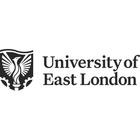- News and articles
- Find usIDP AustraliaIDP BahrainIDP BangladeshIDP CambodiaIDP CanadaIDP ChinaIDP EgyptIDP GhanaIDP Hong KongIDP IndiaIDP IndonesiaIDP IranIDP JordanIDP KenyaIDP KoreaIDP KuwaitIDP LebanonIDP MalaysiaIDP MauritiusIDP Middle EastIDP NepalIDP New ZealandIDP NigeriaIDP OmanIDP PakistanIDP PhilippinesIDP Saudi ArabiaIDP SingaporeIDP Sri LankaIDP Taiwan, ChinaIDP ThailandIDP TurkeyIDP UAEIDP VietnamIDP Corporate
- Social
- English
- Where we operate
- Courses
- Scholarships
- IELTS
- About IDP
- Student Essentials
- News and articles
- Find us
- Find us
- Find nearest IDP offices
- IDP Australia
- IDP Bahrain
- IDP Bangladesh
- IDP Cambodia
- IDP Canada
- IDP China
- IDP Egypt
- IDP Ghana
- IDP Hong Kong
- IDP India
- IDP Indonesia
- IDP Iran
- IDP Jordan
- IDP Kenya
- IDP Korea
- IDP Kuwait
- IDP Lebanon
- IDP Malaysia
- IDP Mauritius
- IDP Middle East
- IDP Nepal
- IDP New Zealand
- IDP Nigeria
- IDP Oman
- IDP Pakistan
- IDP Philippines
- IDP Saudi Arabia
- IDP Singapore
- IDP Sri Lanka
- IDP Taiwan, China
- IDP Thailand
- IDP Turkey
- IDP UAE
- IDP Vietnam
- IDP Corporate
- Social
- Language Switcher
- IDP Education /
- Colleges and Universities /
- United Kingdom /
- University of East London /
- BA (Hons) Psychosocial Studies


Location
United Kingdom
Qualification
Bachelor Degree with Honours
Fees
GBP14820
(2025)
Duration
3 Year(s)
Next intake
08 September 2025
Entry Score
5.5
IELTSCourse info
This course is about the real world, engaging with a wide range of problems and issues including mental health, social care, racism, psychotherapies, class, families, gender, employment, youth, and ageing.
On this degree, we use a range of assessment methods to ensure you have engaged with the learning outcomes of our modules.
Knowledge is assessed by essays, plans, presentations, journals, blogs, portfolios, photography and case studies.
Thinking skills are assessed by reflective logs, project work, poster presentations, research reports, case studies, responses to reflective questions.
Our graduates have gone on to further study and/or entered the following careers: Researcher, Civil Service, Advice/welfare work
Voluntary sector /NGO officer, Community development worker, Housing officer, Equality and diversity officer, Criminal justice, Social worker
Mental health/counselling/psychotherapy, Health or care management, NGO founder,Psychologist
- Scholarships View all scholarships
- Internships
Entry requirements for University of East London
UCAS tariff calculator, including:
A Levels in at least two subjects
BTEC Extended Diploma DMM
BTEC Diploma DD
Access to HE Diploma
T Levels
International Baccalaureate 24 points including a minimum of 15 points at Higher Level
We also welcome applications from students who are taking Level 3 or higher qualifications not on the UCAS tariff calculator and will assess the suitability, on a case by case basis.
In addition to one of the above, you should have:
GCSE English Grade 4/C or Level 2 Functional Skills in English
GCSE Mathematics Grade 4/C or Level 2 Functional Skills in Mathematics
We accept a wide range of European and international qualifications in addition to A-levels, the International Baccalaureate and BTEC qualifications.
IELTS 5.5 with a minimum of 5.5 in Reading, Writing, Listening and Speaking (or recognised equivalent).
Application Deadline
The application deadline isn't available Speak to an IDP counsellor for more detailed information
Further information
If you aren't eligible for the above entry requirements, you might ant to explore pathway options at University of East London. If you want to find out more, speak to our counsellors.
THE World Ranking
1001st / 1250
THE World Ranking123rd / 130
Complete University guideWhat our students think
We’ve haven’t received any reviews for this institution yet.
Recommended for you
- THE World Ranking:601
- Bachelor Degree with Honours
- Coventry , United Kingdom
- Next intake:09/2025
- Entry Score: IELTS 6.0
- GBP16800 (2025)
- THE World Ranking:1001
- Bachelor Degree with Honours
- Cheltenham , United Kingdom
- Next intake:09/2025
- Entry Score: IELTS 6.0
- GBP16600 (2025)
- THE World Ranking:1001
- Bachelor Degree with Honours
- Cheltenham , United Kingdom
- Next intake:09/2025
- Entry Score: IELTS 6.0
- GBP16600 (2025)
- THE World Ranking:401
- Bachelor Degree with Honours
- Newcastle-upon-Tyne , United Kingdom
- Next intake:09/2025
- Entry Score: IELTS 6.0
- GBP19350 (2025)
- Bachelor Degree with Honours
- Next intake:10/2025
- Entry Score: IELTS 6.0
- GBP12500 (2025)
- Bachelor Degree with Honours
- Next intake:10/2025
- Entry Score: IELTS 6.0
- GBP12500 (2025)
- THE World Ranking:501
- Bachelor Degree with Honours
- Chelmsford , United Kingdom
- Next intake:09/2025
- Entry Score: IELTS 5.5
- GBP15900 (2025)
- THE World Ranking:1201
- Bachelor Degree with Honours
- Sunderland , United Kingdom
- Next intake:09/2025
- Entry Score: IELTS 6.0
- GBP16000 (2025)
Your action plan
Step 1
Shortlist your courses
Choose the best three courses you’re most likely to pursue.
Step 2
Check your eligibility
Get an instant in-principle offer for courses with the IDP FastLane tag.
Step 3
Apply through IDP Live
Fill out the form once and use it to apply to multiple courses.
How does IDP FastLane work?
With the FastLane 'Offer in Principle', you'll know in minutes if you'll be accepted!
Select an institution and course
Create your academic profile
Submit your application for an 'Offer in Principle'
Your chosen institution(s) will send you a decision in minutes!
Get ready to apply with an expert counsellor




